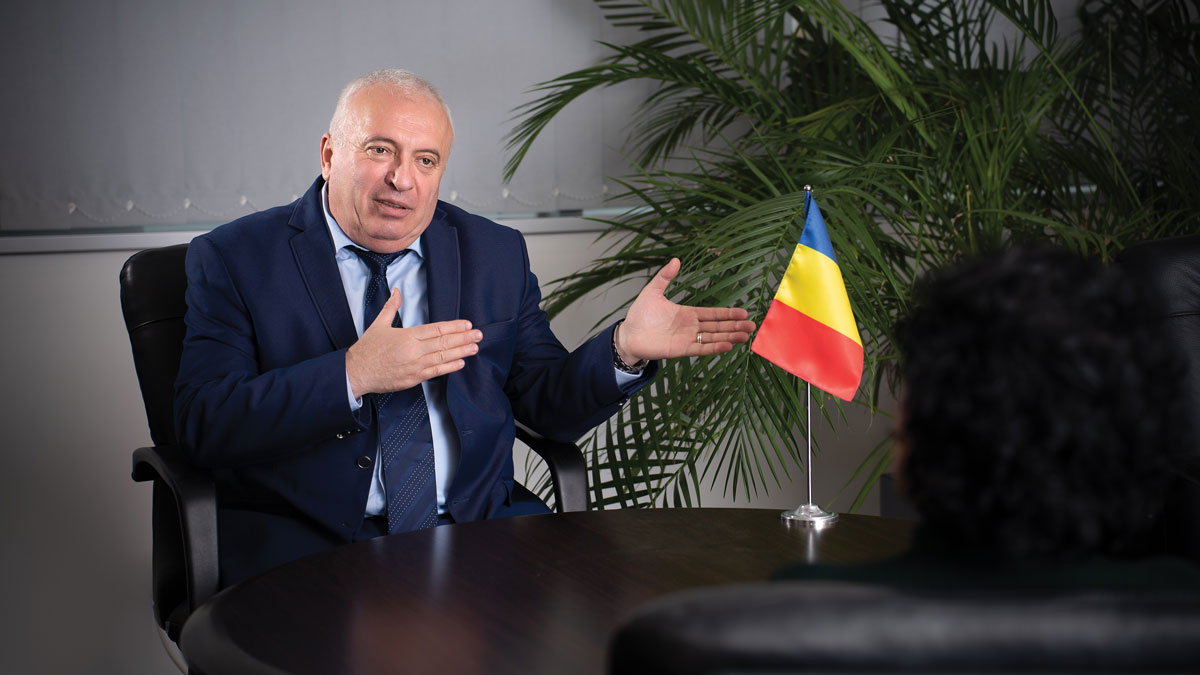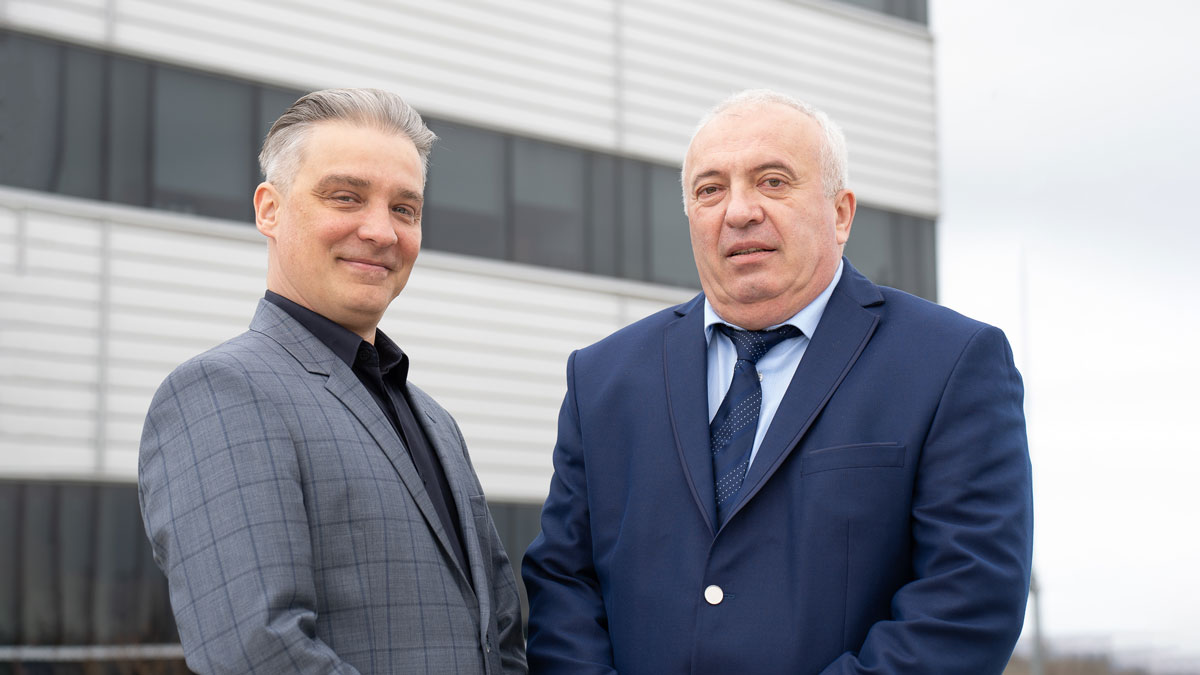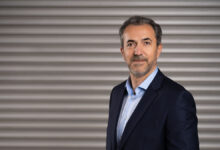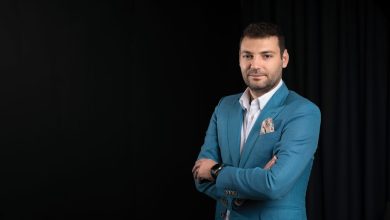Dan Craita and Gabriel Niculae: SLB Continues to Partner with Romania for the Next Generation of Energy
In this interview, Dan Craita – Country Manager East Europe, and Gabriel Niculae – Romania Manufacturing Plants Manager, discuss the opportunities and challenges of local content development and the impact on the community and individuals.
Last year, in October, Schlumberger announced its new name—SLB—underscoring the company’s vision for a decarbonized energy future and affirming its transformation from the world’s largest oilfield services company to a global technology company focused on driving energy innovation for a balanced planet.
In Romania, over the last 10 years SLB has built a global Hub that employs more than 2700 employees. In addition, the company has several facilities in Romania supplying products and services locally and internationally.
Mr. Craita, you have an extensive experience in the oil and gas industry, managing SLB businesses across many countries and environments. What are your thoughts on the new brand and why is now the right time?
Dan Craita: First of all please let me thank you for the opportunity to participate in this interview. After more than 16 years working as an expat for SLB it is a great pleasure to return home and use my experience to make my contribution to the country and the energy sector here.
Going back to your question, what we have done is to evolve our brand, along with our strategy and culture, to align with who we are today and our vision for solving the profound challenge that the industry faces: providing reliable, accessible energy to meet today’s growing demand, while also rapidly decarbonizing for a sustainable future. The industry is evolving. We announced our Net Zero by 2050 objective in June 2021 and we are committed to achieving that goal. We are focused on reducing Scope 1, 2 and 3 emissions across the entire value chain with minimal reliance on offsets and we have been developing our business over several years in line with this vision. Our new identity symbolizes this commitment to moving further, faster in facilitating the world’s energy transition, now and in the future. To reduce our operations emissions, we have already converted many of our facilities to renewable power and by digitalizing operations have reduced emissions accordingly. To support our customers reduce their operational emissions we have introduced our portfolio of Transition Technologies that can measurably reduce the environmental impact of oil and gas operations. Using a scientific methodology developed by our engineers, the impacts of these technologies have proven to reduce footprint.
SLB has spent the last three years laying the groundwork for its increasing focus on low- and zero-carbon energy technology solutions while continuing to drive innovation, decarbonization and performance for the oil and gas industry. How quickly do you expect the energy transition to happen? What does it mean in Romania and internationally?
Dan Craita: The energy transition is underway and has been for some time. We have been at the forefront of the transition, working with our customers and partners to put in place the technology and systems that support their decarbonization aims, whilst also progressing against our own targets.
But the world continues to require oil and gas as part of an energy mix that delivers reliable, accessible supplies for people everywhere – the role we play is in utilizing our vast experience to unlock new gas reserves and accelerate them to market; and we want to do that responsibly by rapidly decarbonizing our own operations, while helping our customers and partners achieve their own environmental aims. For e.g., we are the only energy technology company to have successfully operated in DeepWater elsewhere in the Black Sea and we can bring that expertise to Romania.

What does “energy innovation for a balanced planet” mean and what role do you think hydrocarbon energy sources have in this balance?
Dan Craita: The world will continue to require oil and gas products as part of the energy mix for some time, and the global energy system is not yet ready to turn off all these technologies. But we are very clear that the current energy system needs to decarbonize, and quickly.
We are supporting that goal in many ways, by reducing our own footprint as well as the ones of our customers through the use of transition technologies and digital. We have also developed a new energy business in low carbon activities such as geothermal, hydrogen or CCUS.
How does SLB apply its vision for a decarbonized energy future in Romania?
Dan Craita: Technology has a significant role to play in achieving the world’s energy goals. Technology enables rapid decarbonization, offers efficiency and effectiveness improvements and can make our work safer for our people.
Technology has also brought about a surge in innovation that has rapidly accelerated our transition to cleaner energy usage. By being present at scale in Romania we are ensuring the country has full access to our technological portfolio while also participating with best-in-class technical experts in the local forums where this topic is discussed.
For example, there are technologies available that can prevent carbon even reaching the atmosphere, such as carbon capture solutions. The SLB Carbon capture, utilization, and sequestration (CCUS) technical expertise for Europe is located in Bucharest and already engaged with all stakeholders providing our global expertize.
Today, SLB has more than 2700 employees and several facilities in Romania supplying products and services not only locally but across the globe. What are the opportunities and challenges of SLB local content development in Romania?
Dan Craita: SLB has a “recruit where we work” philosophy and strives to be an employer of choice wherever we operate. Our focus on local recruitment makes good business sense; we believe it creates a highly motivated service organization with firm foundations, low staff attrition rates, and a sound understanding of local customs and industrial and business practices.
Our goal is to develop competent, effective, and high performing employees through learning opportunities that complement their jobs and promote individual growth. To achieve this, we invest significant time and resources in our training and development programs. There are no barriers to personal development in SLB and I am a good example.
I started in SLB as a field engineer recruited directly from the University of Oil and Gas from my hometown, Ploiesti and all my promotions were based purely on performance and merit. Managers are generally appointed from within the organization, and a comprehensive management development program is offered for line managers of all levels. Our commitment to development continues whether an individual pursues a technical, managerial, or functional career path.
Today there are over 250 Romanian employees working around the globe, in addition to the team employed locally and it is a company expectation that they will return home at some stage in the career to bring their expertize and contribute to the local community.
We are continuously striving to deliver the ambitious diversity objectives on female technical positions. Even though we are doing an outstanding job on diversity in Romania overall, with over 44% of our teams being female, there is more we can do, and we have initiated programs and partnerships with key universities in Romania so we can together attract more female talent in a technical career path.
Mr. Niculae, you have an impressive experience in the oil and gas industry, extended over more than 35 years. How do you assess the evolution of the energy market in Romania?
Gabriel Niculae: Since 1990, Romania has benefited from a diversified energy portfolio that includes a mature oil and gas sector, hydropower plants, thermal plants, and a nuclear power plant. On this solid foundation Romania continued to develop and prosper.
If we review the latest Eurostat statistics, from 2021, on the share percentage of energy coming from renewable sources we will find Romania above the EU average and on track for the 2030 target to cut greenhouse gas

emissions by at least 55% by 2030 and set Europe on a responsible path to becoming carbon neutral by 2050.
Looking at the energy mix in 2021 half of our energy was coming from coal and oil while the other half was gas, renewable and nuclear. For the electricity mix solid fossil fuel produced 17% while the other 83% was produced from natural gas, renewable, biofuel, biomass and nuclear.
For the medium term, natural gas must be viewed as the transitional fuel to a green future and be used to lower the need for solid fossil fuels. In this scenario, projects such as Black Sea developments become essential.
How does SLB support the local community?
Gabriel Niculae: I know you have previously discussed with my colleagues about our early days in Romania starting in 1923 so I will focus on the period starting in 1994. Since then, we have continuously expanded our footprint in Romania by investing in local infrastructure, operating bases, manufacturing facilities and offices to best serve our customers across Romania and further as a global support Hub.
We serve the full spectrum of operations from our base in Ploiesti West Park, supported by small satellites around the country or in partnership with local vendors.
In our commitment for sustainability the Ploiesti facility has completed the move to LCD lighting last year and this year, we will implement a full water recycling plant for the entire wastewater produced.
In 2022 we achieved a 32% reduction on the gas consumption and 13% reduction on electricity consumption compared to 2021, and this is further to the reductions we had in previous years.
We have also deployed a technology access business model where we provide access to high tier technology to local service companies. This means the end customer can benefit from this technology when required, and the local partner can boost their services offered.
The manufacturing plants, that I proudly manage, are in Ploiesti and Campina providing products and services both locally and internationally. We have a multimillion plan for this year with two main projects:
- Manufacturing Execution System (MES): an integrated and modular suite of manufacturing production management software that manages, monitors, and coordinates the digital execution of work orders with enterprise-level ERP systems and shop floor systems.
- Flexible Manufacturing System (FMS)- an integrated 38 pallet changing system with storage racks driven by a manufacturing management software control system (MMS), with tool gantry robots, coordinate measuring machines (CMM), washing and deburring stations. The Flexible Manufacturing System will have a positive impact on the productivity and quality of the delivered products.
In Bucharest we host the Hubs supporting the Eastern Hemisphere operations. Here you can find disciplines such as finance, legal, procurement, HR, logistics etc.
Also, in Bucharest we have the Eastern Hemisphere commercial centre and technical domains centre where we have 38 Nationalities and 685 years of technical expertise, available 24/7 for our projects.
As part of our commitment to the country, SLB has developed an extensive network counting over 500 local vendors and suppliers, with 60 % of all our purchase needs being fulfilled by this local network.
We can talk much more about this topic; it is hard to summarize almost 30 years of continuous presence in just few paragraphs.
What do you believe is needed to support the continued development of the Romania oil and gas industry?
Dan Craita: A clear objective backed by stable and predictable legislation is fundamental in developing any economy sector and we see that in Romania today.
As you know, we have been the partner of choice in all Black Sea projects in Romania in the last decade and we are currently providing integrated services to our customers in the Turkey Black Sea sector, not far from the Neptune Deep lease.
The Turkish gas deposits were discovered years after the discovery in the Romanian sector of the Black Sea and will be ready to start production this year and SLB has been awarded a contract to provide engineering, procurement, construction, and installation expertise and technology (EPCI contract). In order to deliver the clear objective on the first gas to shore date, we have partnered with other international and local companies and together with the customer we are working to deliver the country objective of energy independence and decarbonization.
SLB is ready to partner with all the stakeholders, as we have done in all past projects in the Black Sea, to deliver this objective and we have an undisputable track record in the region for delivering on similar projects.
In the current global energy market context, what tools does a manager have to increase performance and give more value to the business?
Dan Craita: With digital, we are currently living the 4th Industrial Revolution, therefore the answer is clear, digital technology.
Digital technology is transforming our products and services, and how we deliver to our customers. This is the foundation of the integrated systems approach. We create value through the integration of data, technology, and processes enabled by the best people in the industry for the benefit of our customers. Through digital adoption, we are increasingly able to reduce the long and complex planning cycles inherent in the energy industry, using AI-supported analyses to drive performance-improving decisions.
The ability to monitor processes in real-time, is allowing us to optimise production and maintenance, maximising uptime, and forward-planning interventions.
Whether it is production optimization of a single well, composition of feasibility studies for carbon capture and storage projects or the huge, global challenge of energy transition, digital transformation in oil and gas is a fundamental part of a sustainable future, both commercially and environmentally.







